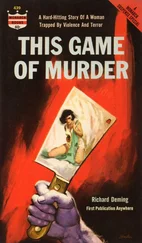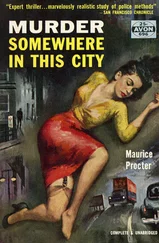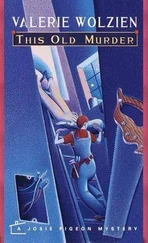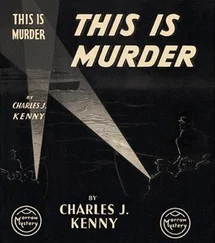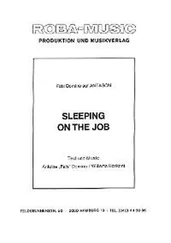In their panic to avoid a head-on collision, the drug runners swung hard to starboard and ran aground in the rock-strewn shallows. The impact shredded the boat’s fiberglass hull. Its powerful engines revved, and the twin propellers chewed the silt, gravel, and debris into a roiling slurry that splattered everywhere.
Sputtering and coughing, I was pulled from the water onto another police boat. With sadness, I watched the Lady J recede into the darkness.
As the patrol boat approached shore, I saw one of the smugglers had been thrown clear of the wreck. The other was slumped over the steering wheel. It was to have been a busy night for them, judging from the four duffle bags and several red, plastic fuel containers I saw in the speedboat’s cockpit.
Wrapped in blankets a few minutes later, I shivered in the command boat’s cabin as the smugglers in handcuffs were brought on board. I saw blood trickling down the driver’s shiny head and across his face. The man who had been thrown from the boat had been bald, too. My heart pounded, and anger swelled as I recognized the hoodlums who had dumped me in the bay. Perhaps sensing my rising fury, Denise grabbed my arm, pulling me close. “Shelby, I don’t know about you, but I sure could use a cup of your special coffee.”
* * * *
My editor and the rest of the Inside Access staff gave me a warm welcome as I walked into the office. In twos and threes, they drifted over to ask what had happened and where I’d been during my sabbatical.
That afternoon I began writing my insider’s account of drug smuggling in the Chesapeake Bay, untangling the spider’s web of motherships, speedboats, stash houses, wholesalers, and street dealers. I worked like a fiend for three weeks, with my editor breathing down my neck and refilling my coffee cup so we could make the next deadline.
Soon every major news outlet in the country ran stories about my exposé and how it helped the DEA and the Coast Guard shut down the Compioso cartel’s entire East Coast drug network. There was even some buzz about a potential Pulitzer Prize. While I was flattered by all that attention, the bottom line was that I had finally settled the score, saving lots of young lives, like Janette’s.
I was working on another story when I signed for a FedEx delivery. In the package was a framed photograph of Denise and her uncle beside the Lady J , all patched up and freshly painted. A hand-written note read, “As long as their memory endures, the dead rise up within the hearts of the living. Anytime you need help with a story, you know where to find us.”
I put the picture on my desk and resumed tapping away at my computer.
David Autry is a recovering newspaper reporter currently employed as a writer/editor for a national non-profit organization. Born in Memphis, Tennessee, his love of reading and writing sprang from the region’s rich traditions of oral storytelling, music, and literature. He grew up reading hard-boiled detective stories, mysteries, spy thrillers, and many of the Beat writers, as well as the usual classics. That exposure to a broad array of styles and subjects helped solidify his preferences for what he likes to read and write. He lives in Olney, Maryland, with his wife and two cats.
THE FACTORY, by Harriette Sackler
Stacey Levine sat at her grandmother’s dining room table. She’d just devoured a large bowl of cabbage soup along with three substantial pieces of challah and already her stomach was rebelling against so much food. She didn’t know how she would tackle the brisket with fixings that was yet to come, not to mention the freshly baked apple pie. Nana Rebecca always prepared enough food for an army, and Stacey couldn’t deny her the pleasure of seeing her granddaughter eat.
“So, darling. How was school this week?” Rebecca asked as she came into the dining room with more food.
“Pretty good. I took two exams and think I did well. Got an A on my creative writing project. And let me tell you about the paper I’m doing for my History of the U.S. Labor Movement class. I’ve chosen to focus on early twentieth-century New York City and the sweatshops in particular. It’s hard to believe people actually worked under such horrible conditions back then, and in some places, still do. I swear, I don’t think I could’ve survived.”
After hearing her granddaughter’s words, Rebecca stared into space for a moment, then turned to Stacey.
“My sweet girl, I’d like to tell you a story. I think it will be helpful to you as you write your paper. I ask only that you let me talk until I’m through and then you can ask me any questions you want.”
“Of course, Nana.”
“This is the story of my aunt Rivka.”
* * * *
The large dim room was sweltering. No breeze penetrated the two filth-encrusted windows that faced the narrow airshaft separating the building from its neighbor. The whir and clack of forty sewing machines created an incessant noise that caused dull aches behind eyes. Lint and cotton dust floated through the air, clogging nostrils and causing a cacophony of sneezes, coughs, and hacking throughout the workday. There was little talk, because the women who worked here twelve hours a day simply didn’t have the energy. It wasn’t unusual for a worker to put her head down on her machine and succumb to the heat. Chances were she wouldn’t be back the following day.
Rivka felt old. At the tender age of seventeen, she’d had little opportunity to experience the joys of youth. She barely remembered her life in the old country and wasn’t sure at all that America was truly a land of freedom and opportunity. Unless opportunity meant the honor of spending half her life in this infernal hell. But on the Sabbath she spent a joyous day praying, eating, and resting with her beloved family. And dreaming. Of a life she’d never known.
Her father worked as a peddler. He pushed his cart through the teeming streets of the Lower East Side, selling used clothing to the poor. Her mother did piecework from home, embroidering yarmulkes and taleisim with fine artistry fit for kings. Her brother, Schmuel, sold newspapers, and Sarah, the baby, was spared the necessity, at least for several more years, of contributing to the family’s support. The Lipskys were lucky. Their children could stay in school longer than most children on the Lower East Side because their father earned a bit more than others who lived in the tenements. But their dream of sending Schmuel to City College required all the family members to do their part.
* * * *
Elias Pearlstein was a lucky man. Thanks to his cousin, Reuben, he enjoyed a nice living as foreman of Mendelsohn’s Menswear without having to actually labor as his workers did. He supervised. Or, more specifically, terrorized the women and girls in his charge. He pushed them beyond limits, finishing one more pair of pants by hand when their fingers could no longer guide the fabric through the sewing machine. He lengthened the workday and shortened the lunch break. He increased quotas and decreased pay. Nothing dramatic to cause a stir, but just enough to prove to Cousin Reuben that the factory was in good hands.
Best of all, Elias had a captive audience for his amorous advances. His wife had died in childbirth years before, and he now relied on the factory ladies to satisfy his sexual needs. The fact that they surrendered only under duress didn’t bother Elias a bit.
“Good morning, Miss Stern. So nice to see you so bright and early. I know how much your wages mean to you. So no doubt you’ll be most agreeable to a little meeting in my office after the workday.”
“I beg you, Mr. Pearlstein, not to shame me. I work so hard, sewing all day. Isn’t that enough?”
Читать дальше

